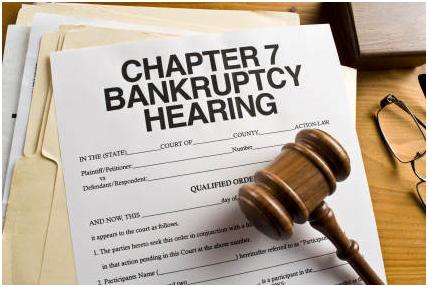Knowing fully about Chapter 7, or liquidation bankruptcy, is critical for anyone thinking about filing it. It is the most commonly filed bankruptcy chapter in the United States, and refers to the Bankruptcy Code chapter which is found in Title 11of the US Code. Chapter 7 refers to a trustee selling off the borrower’s non-exempt assets. The proceeds from this sale are handed over to the creditors.
For the declaration of Chapter 7, a bankruptcy petition needs to be prepared first. The borrower needs to compile all his financial records so he can fill out the bankruptcy petition, financial affairs statement, schedules, credit card statements, bank statements, paystubs, loan documents and any additional financial documents. The borrower’s details in his financial documents should match those on his bankruptcy documents. If a borrower has all his documents ready, he can entertain any requests from the trustee right away in case he wants to verify anything.
Additionally, you will need to complete many other documents too. These documents can be bought from the clerk’s office in the bankruptcy court. These documents may include the assets’ and liabilities’ schedules, voluntary petition for relief, statement of financial affairs and declaration pertaining to debtor education. The purpose of this documentation is to lay out a filer’s financial history in front of the bankruptcy court. It comprises a list of all of his debts, property, income, creditors, property transfers, expenses and other things. Once all the documents are ready, the borrower must file them with the court clerk for a filing fee.
After that, the debtor must pass the means test. The means test calculation document needs to be completed before filing. It was added to the Bankruptcy Code in 2005 and determines whether you can afford to pay your debts. The means test entails annualizing your six months’ income and comparing it with the median income of your residential area. The test also takes into account your secured debt to determine if you can repay your debts or not. In case you fail the means test, only under some very special conditions can you file for bankruptcy. No wonder it has garnered so much criticism since it was promulgated.
After the filing is done, the court will schedule a debtor’s Meeting of Creditors for you. A notice for the same will also be sent to all of the creditors that are mentioned in the bankruptcy documents. In this meeting, the trustee will ask various questions from the borrower about the bankruptcy like whether all of the information in the documents is true or not. The trustee may also ask other questions pertaining to the debtor’s financial condition. The meeting may be continued to another date should the trustee feel the need for it. Any creditor may also come to the meeting and ask about the debtor’s finances and bankruptcy.

If you happen to have any non-exempt assets, they will be seized and sold by the trustee. You can keep certain types of property like your retirement account and mention them in Schedule C – a document filed by the borrower. The recovered assets are distributed amongst the creditors.
Post this, if the trustee and creditor do not object to a discharge of the debtor, the court will grant it. It can happen up to 60 days after the first meeting of Creditors. The discharge stops the creditors from collecting any debt from the borrower. Bankruptcy is personal only and a creditor may collect a discharged debt from a co-debtor, one which did not file bankruptcy.

All of the above procedure may sound very simple on paper, but in reality it is pretty lengthy and detail-oriented. You will need a competent chapter 7 bankruptcy attorney to guide you through this entire procedure, one with which you are comfortable sharing all your confidential issues and one who will represent you appropriately. At JR Law, we do just that. With 25 years of bankruptcy experience, we are all set and equipped to fight all of your debt-related worries. Contact JR Law today for a consult on your current financial position. We are sure to help you out!
